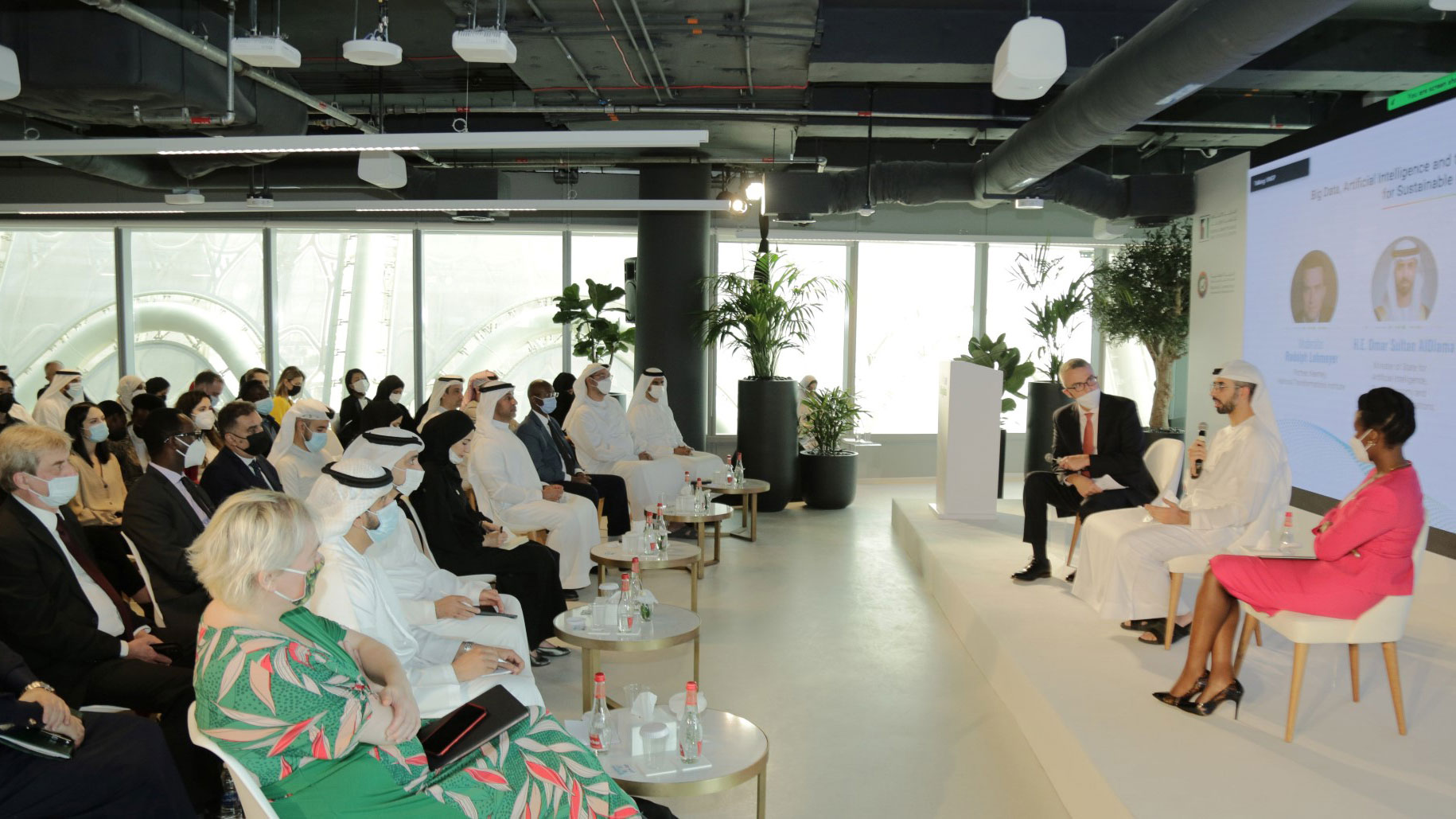



The UAE Government launched the United Nations platform ‘Big Data for Sustainable Development’ last month to meet the needs of the Middle East and North Africa region and use big data’s capabilities for good.
The UAE is one of four regional headquarters selected by the UN for the platform.
Announced during the ‘Mobilising Big Data and Data Science for the Sustainable Development Goals’ forum at Expo 2020 Dubai, the platform’s launch aligns with the government’s ongoing mission to achieve the sustainable development goals (SDGs) set out by the UN by deploying big data and artificial intelligence.
SDGs include supporting comprehensive and sustainable manufacturing and adapting strategies to promote innovation and advanced industrial tech solutions, which the UAE’s Ministry of Industry and Advanced Technology is doing.
According to Hanan Mansour, Acting Director of the Federal Center for Competitiveness and Statistics, the center’s experts worked with a UN team to develop the platform’s optimal architecture, noting that the facility controls 578 national statistical indexes and is linked to over 40 authorities to assure data protection. It can handle over 100 million raw data units every year.
The UAE seeks to establish a conducive environment for fostering talents in advanced data by empowering the country’s youth and honing their skills and capabilities in transformational technologies and sustainability, as well as focusing on improving the efficiency of AI and big data utilisation across vital sectors to achieve SDGs.
As exemplified in the UN’s SDGs that were adopted in 2015, the biggest challenge facing technology, innovation and science is its contribution to the pursuit of global sustainability.
Referred to as the 2030 Agenda for Sustainable Development, SDGs are an integrated framework of ambitious goals representing humanity’s commitment to taking transformative action to solve and deal with the world’s most pressing social, economic, and environmental issues.
The 17 SDGs set out by the UN are: no poverty; zero hunger; good health and wellbeing; quality education; gender equality; clean water and sanitation; affordable and clean energy; decent work and economic growth; resilient industry, innovation, and infrastructure; reduced inequalities; sustainable cities and communities; responsible consumption and production; climate action; conservation of life below water; protect, restore and promote life on land; peace, justice, and strong institutions; and building partnerships for the goals.
When developing the strategies for the Agenda, the UN recognised the importance of integrating scientific evidence in policy and decision-making processes. With state-of-the-art technology and innovative solutions at its disposal, the UN encourages multi-stakeholder engagement and partnerships to devise practical, evidence-backed solutions to global sustainability problems, challenges, and demands.
One of the key issues the UN has shifted its focus to in recent years is to improve the access and quality of reliable data sources to ensure data is correctly analyzed and used to develop effective strategies.
According to the UN, the volume of data in the world has been increasing consistently, with an estimated 64.2 zettabytes of data created in 2020 alone, accounting for a 314% increase from 2015.
The COVID-19 pandemic also contributed to this higher than anticipated growth in data.
However, a big chunk of this data is ‘data exhaust’ or was passively collected from everyday interactions with technology, including digital products and services such as social media, mobile phones, and credit cards. This data deluge is referred to as big data.
The explosion in the availability of big data, AI, and the Internet of Things is doing wonders for societies worldwide and still holds a lot of untapped potential for good.
Analysing big data is now commonplace within organisations. It helps companies personalise their products and services, tailor them for unique customer experiences, and gain more insight into what consumers really want.
Similar techniques, which have already been used in marketing, advertising, and management can be applied to gain more insight into people’s wellbeing in real-time and identify where aid is needed most to intervene when necessary and help vulnerable communities.
If applied responsibly, new technologies and analytical approaches can be a massive help for humanitarian causes, enabling better decision-making and measuring the progress of SDGs more efficiently, in a fairer and more inclusive way.
According to the UN, big data can shed light on disparities in society that were previously hidden, and much of this data is often collected by the private sector. This is why public-private partnerships are likely to become more common. However, firms may face challenges in ensuring the data is being used sustainably. So it is essential to set out a clear framework that clarifies roles and outlines expectations on all sides.
The UAE has – and intends to continue to – cooperate with several countries’ governments and international organisations to devise strategic partnerships that will help draft legislation, establish key partnerships with countries and firms that produce technology and social media platforms, and have advanced technology capabilities.
A key contributor to bringing foreign talent into the MENA market and encouraging mutually beneficial, strategic partnerships is the Seed Group.
A company of the Royal Family of Dubai, Seed Group has been an undeniable key contributor that has bolstered the UAE’s digital capabilities and built several strategic relationships with firms from all over the world.
It has played a significant role in bringing international businesses of all sizes that offer innovative products and services to the country, helping them expand their presence in the region and promoting an even greater uptake in technology across potentially every sector imaginable.
As a result, it now has over 70 companies under its umbrella through investments and partnerships over the past 16 years.
Don’t forget to share this post!
We use cookies to enhance your experience on our website. If you continue using this website, we assume that you agree with these. Learn more.


